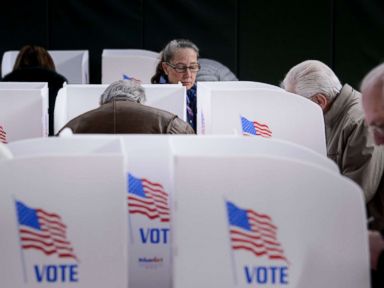
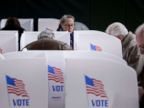

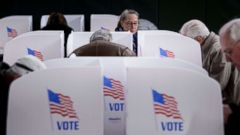
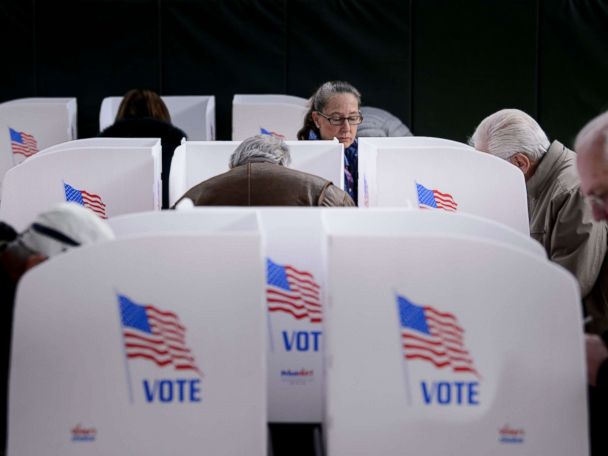
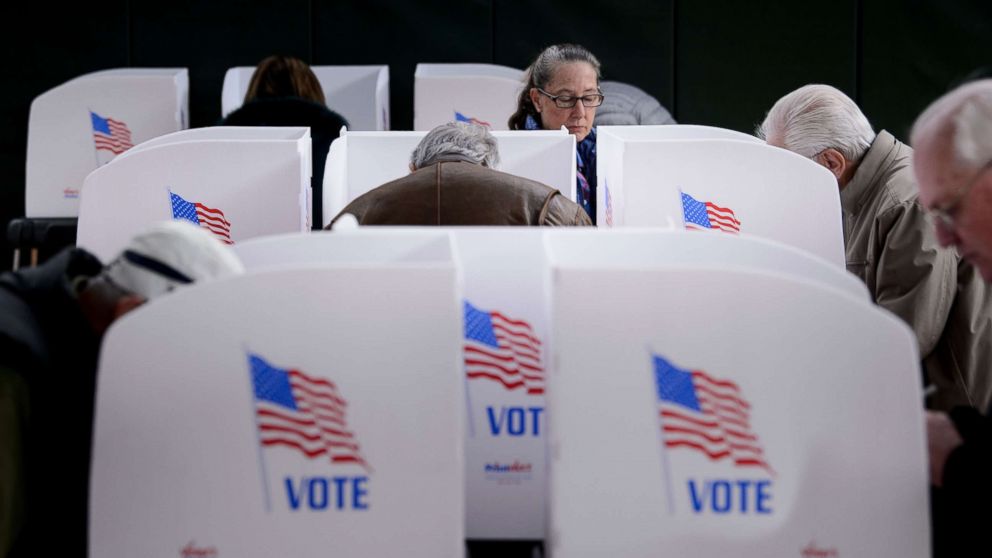

It’s been a long run — a fact few can attest to more than the candidates on the trail — but Election Day 2018 has finally arrived.
This year’s midterm elections are the first nationwide contests since 2016, when President Donald Trump won an upset victory over former Secretary of State and Democratic nominee Hillary Clinton.
Many, including the president, see this election as a referendum on his time in office — something Trump embraced as he barnstormed across the country in the final weeks.
“I’m not on the ticket, but I am on the ticket because this is also a referendum about me,” Trump said at a rally in Southaven, Miss., in early October. “Pretend I’m on the ballot.”
It is a refrain he has repeated in an attempt to leverage popularity with his base to further strengthen the Republican Party’s reach, specifically in rural, blue-collar, predominantly white regions.
Heading into Tuesday night, Republicans not only control the White House but both chambers of Congress.
In the Senate, where there are staggered elections with senators serving six-year terms, 35 seats are up for election. In the House, where there are elections every two years, all 435 seats are up for election.
The conversation ahead of the midterms has been dominated by talk of Democratic enthusiasm that could bring a “blue wave.”
Democrats appear more poised for victory in the House, where they need a net gain of 23 seats to be the majority. In the Senate, Democrats would need a net gain of two seats to take control, but there are 10 vulnerable Democratic senators running in states Trump won in 2016.
Early voting has also been read as a signal that enthusiasm is up — though in some states, it’s a result of newly-expanded early voting opportunities. According to data from Michael McDonald, an early voting expert at the University of Florida, 2018 early voting has already significantly surpassed 2014 figures.
As of Friday, over 30 million early ballots were cast. In 2014 on the same day, 17 million ballots were cast. And the total early ballots case in the entire 2010 midterms came in just over 19 million.
According to the latest ABC News/Washington Post poll, the top issues driving voters to the polls this year are health care and the economy, both almost tied in importance to vote choice, followed by immigration. Democrats have made health care — and especially coverage for people with pre-existing conditions — a key part of their platform, while Trump has significantly upped his rhetoric on immigration, using a caravan that’s weeks away from the border to bring the topic to the forefront.
Despite the well-ingrained partisan positions on these issues, the candidates running for election across the country this year are diverse, and many are poised to make history.
If elected, Democrat Stacey Abrams, running for governor in Georgia, will be the first African-American woman governor in U.S. history. Three other states south of the Mason-Dixon line could also elect their first-ever African American governors.
It’s could be a historic year for Native American women as well. In the House, Sharice Davids of Kansas and Debra Haaland of New Mexico, both Democrats, could become the first Native American congresswomen. Paulette Jordan, a Democrat running for governor of Iowa, could become the country’s first Native American governor, as well as the state’s first female governor — and Idaho’s first Democratic governor since 1999.
There are also two female Muslim congressional candidates, Rashida Tlaib in Michigan and Ilhan Omar in Minnesota, who are poised to make history as well.
And Vermont is poised to make history for the LGBTQ community if voters in the Green Mountain State oust their current governor in favor of first-time candidate Christine Hallquist, who would be the first transgender governor in the nation if elected on Tuesday.
In some states, both candidates on the ticket offer diverse and historic choices.
In New Hampshire, Eddie Edwards, a Republican could be the state’s first African American member of Congress. His opponent, Democrat Chris Pappas, could be the state’s first openly gay member of Congress.
And while many more individual candidates could be potentially historical change-makers, taken together, there are also some record-breaking themes.
Women, for example, are running in numbers never seen before.
Today, 84 of the 435 House members are women, while a staggering 239 women are on the ballot for seats come November 6. They’re former fighter pilots, intelligence officers, doctors, nurses and scientists. By a 3-to-1 margin, these women candidates are also Democrats.
Veterans are also on the ballot in record numbers. According to a non-partisan veteran super PAC, over 200 military veterans are running for Congress — a stark number considering there are fewer veterans in Congress today, at 20 percent than ever before.
Polls in competitive races begin to close at 7 p.m. EDT and continue through 1 a.m. EDT.
After months of fundraising, advertising, door knocking and block walking, the candidates have made themselves known.
Now it’s up to the voters.
Coverage of the 2018 Midterms on ABC News Live:
Get full election coverage on ABC News Live beginning today at 4:30 p.m. EST at ABCNews.com/Live, on the ABC News app and on Roku, Hulu and Facebook.
